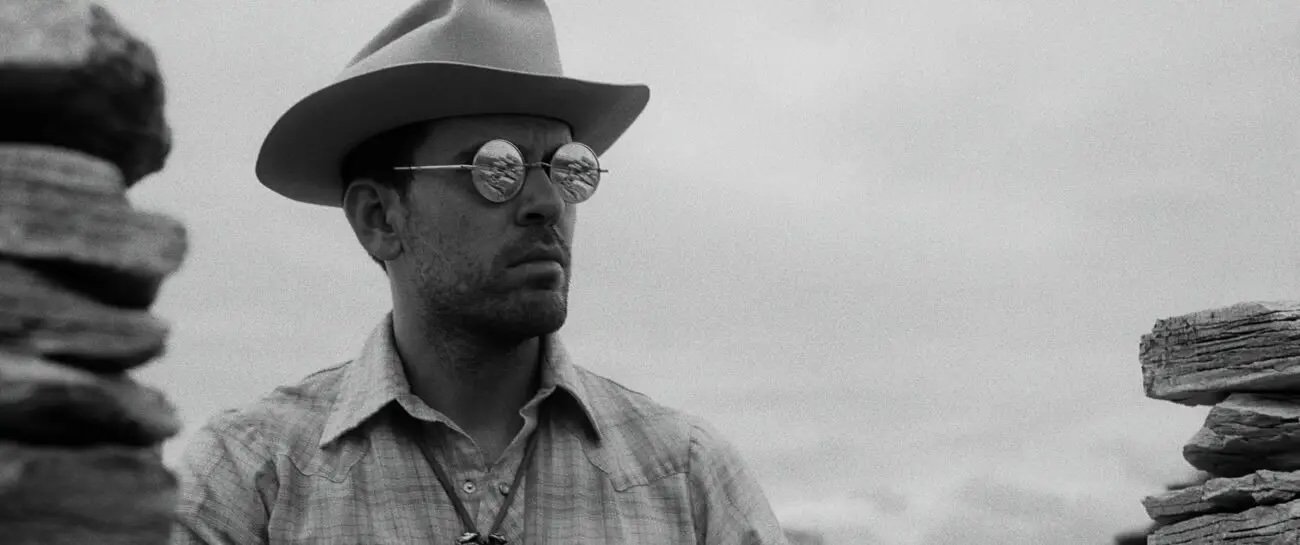The Enduring Legacy of Ghost Stories: Timothy Stevens Interview
The Ghost Lights is a modern fable about familial loss, memory, and, most importantly, the paranormal goings on of West Texas. Alex (Katreeva Phillips) is a journalist visiting her hometown shortly after her father’s passing. While cleaning out his home, Alex comes across an old cassette tape of interviews her father (Katreeva Phillips) conducted back in the 1970s with Mario (Billy Blair) about mysterious lights that appear in the vast sky of West Texas. It’s these landscapes that inspired writer/director Timothy Stevens to write The Ghost Lights.
“Going out there,” Stevens says, “seeing these big, beautiful landscapes and then going, ‘oh my gosh I’ve got to make something here.’”
As for what made Stevens interested in adding a science-fiction, paranormal slant to his script: he has a podcast to thank for that. Alice Isn’t Dead is made by the same creators of the well-known Welcome to Nightvale series. Having these strange, Twilight Zone-esque stories in his mind as he traveled through Texas was a recipe for a film.
“You go out and you see these weird little roadside attractions and these abandoned gas stations and these farm homes. You start to kind of feel like there’s something else going on or there could be.”
Terror Films
Stevens grew up in Amarillo, Texas, but he didn’t experience the sensation of loneliness in wide open spaces until he traveled west, past oil country to celebrate Día de Muertos. The atmosphere is a stark difference to Dallas, where he calls home now.
“You can feel kind of out of time,” Stevens says about the act of road tripping. “There’s a lot of very strange time capsules from the mid-century through that era of the country…You start to feel like you’re time traveling…The theme of space and time is something that we’re playing with.”
More than just inexplicable ghostly sightings, The Ghost Lights is about time and regret. There’s nothing unexplainable about the mistakes humans make when it comes to other humans. We hurt each other, sometimes with the best intentions or with the worst. Time is limited, but it doesn’t feel like that. Procrastination is a flaw of the human condition, but, inevitably, time will run out.
“I’m very interested in the past and keeping it alive. What The Ghost Lights explores is how we hold onto grudges and how we can take time and memory for granted. So when these things are gone, they’re gone before we’re ready to be gone…It happened a lot in 2020,” Stevens says, solemnly.
Terror Films
“What didn’t I say? What should I have said? Things that I did say that I wish I hadn’t said and wishing to make things right,” Stevens explains. “We can be haunted by ghosts. We can be haunted by memory in the case of Alex in The Ghost Lights. We can be haunted by regret. We can be haunted by the mistakes of our fathers, by our parents…We as a society are suffering hugely from the mistakes of people fifty, a hundred, a hundred-fifty years ago.”
Cassette tapes play a major role in The Ghost Lights. It’s the tie between Alex in the present day and her father in the past. The choice to use tapes highlights the greater theme of “how memory can kind of start to make [past and present] bleed together,” Stevens explains.
“Tape is an interesting medium because you know with these you can record over and over again. The more you record over stuff, it starts to degrade the quality,” Stevens continues. “Kinda like memory starts to fade, but it also retains a bit of what you recorded over it…it starts to call into question this idea of time. Like what is time, what is memory.”
Terror Films
Follow me on BlueSky, Instagram, Letterboxd, YouTube, & Facebook. Check out Movies with My Dad, a new podcast recorded on the car ride home from the movies.



